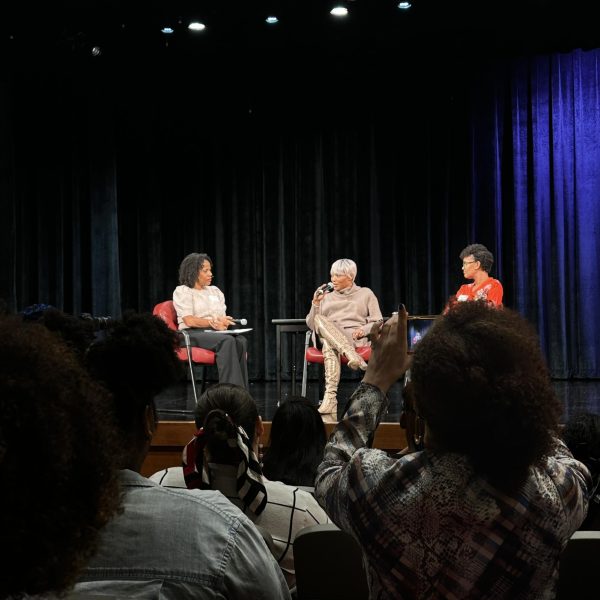
Tulane University hosted the 5th Biennial Black Women’s Health Conference, themed “Memoir and Black Women’s Health,” an exploration into the resilience and experiences of Black women on Feb. 17. This year’s sponsors included the Newcomb College Institute and the Lavin-Bernick Faculty Grant Program. The conference took place at Dr. Martin Luther King Charter School and featured two keynote speakers, Sesali Bowen and Joan Morgan.
Bowen is an author, media personality and cultural commentator. She is a former senior entertainment editor at NYLON magazine and the author of the 2021 book “Bad Fat Black Girl: Notes From a Trap Feminist.” Morgan is a program director at NYU’s Center for Black Visual Culture, an award-winning cultural critic, feminist author and Grammy-nominated songwriter.
With over 50 attendees, this year’s conference included workshops with guest speakers and panels. The workshops included topics like breastfeeding equity for Black women, mental health and post-Roe impact on Black women’s health.
One of the workshops, led by guest speaker Dr. Deshawn Taylor, addressed the challenges Black pregnant women face in accessing quality resources and culturally appropriate care. This session focused on the historical contexts and inequalities contributing to reproductive health disparities that are present today. According to the CDC, Black women experience higher maternal mortality rates compared to other racial groups.
When asked about the importance of the BWHC, New Orleans Councilman Oliver Thomas said that conferences and initiatives like those led by Nghana Lewis and Tulane to increase awareness on issues of Black women’s health are pivotal in “giving our community and culture a chance to survive.”
“Individual health, as a part of collective health, means cultural and community health,” Thomas said, will ultimately heal many “social ills and problems we have right now.”
Morgan led the keynote roundtable discussion titled “A Hip Hop Feminist Update on the State of Black Women’s Health.” She said that society places high expectations on Black female artists, like rapper and singer-songwriter Lauryn Hill.
Hill “reminds me of other artists who have issues that have gone unattended because the machine has to keep working, because your machine feeds a lot of people,” Morgan said. She noted that Black women’s health still doesn’t get attention.
Morgan said that Black women in the music industry can be mistaken as unprofessional, when a “mental health conversation” may be more appropriate. Morgan used artist Nina Simone as an example, who was diagnosed with bipolar disorder in the 1980s.
Deleso A. Alford, law professor at Southern University Law Center, was the guest speaker for the closing plenary session titled “HerStories: Where Do We Go from Here?” Her presentation highlighted her innovative work in connecting legal and medical education through the narrative of “HER stories,” sharing the lived experiences of Black women, which intersects healthcare and research.
The BWHC remains a significant event not only for the Tulane community but also for the Greater New Orleans area.
One of the attendees, Julia Creson, who recently received her master of English from Tulane said she decided to attend the conference because she read Bowen’s “Bad Fat Black Girl: Notes From a Trap Feminist” and Morgan’s “When Chickenheads Come Home to Roost.” Creson also wanted to attend after listening to Bowen’s “Purse First” podcast because “there aren’t any other podcasts about women or queer people in rap.”
Graduate student Claire Stephens said she decided to attend after taking Lewis’s class that was about everything “from womanism to trap feminism” and listening to Bowen’s “Purse First” podcast with Creson, so when they saw the poster for the conference, “[they] had to go to that immediately.”


